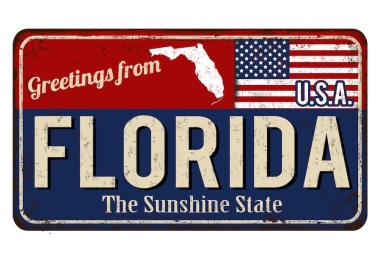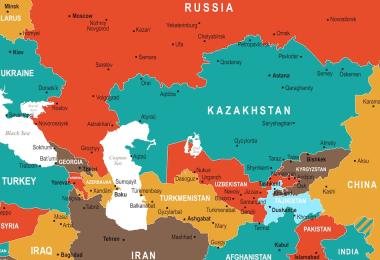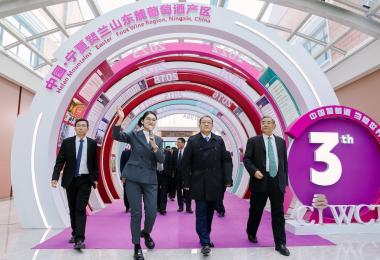The rise of online shopping has made it an uncertain time for German retailers – but the fact that almost all the retailers featured here are growing should be a good sign for the industry.
Many large wine merchants have not been included in this top 10 list. In particular, pure online retailers such as Superiore.de and Wine in Black are excluded. To be included in the top 10, at least 10% of wine sales must come from physical retail sales. The list also only includes retailers who specialise in wine, which means that companies like Dallmayr or Vom Fass, where wine accounts for less than 50% of sales, are not included.
In order to emphasise the role of the wine retailer, the top 10 is weighted by wine sales to end customers. This makes it difficult for companies with a strong restaurant or wholesale focus, such as Garibaldi, to get into the top 10.
Jacques’ Wein-Depot
A look at Jacques’ Wein-Depot should be enough to silence anyone who talks about the specialist wine shop being a dying breed. The Hawesko subsidiary has not only succeeded in keeping its 293 franchisees on board, but has even gained five new ones. With an annual turnover of almost €500,000.00 ($546,845.00) per average store, the concept still seems to be viable going into the future. The internet plays only a marginal role for Jacques’, with just 3% of sales generated online, the smallest proportion of all the companies in the top 10.
Jacques’ recently also became one of the growth drivers within the Hawesko Group. In 2016, Jacques’ grew by 4% to €146m. Managing director Alexander Borwitzky has no concerns that this will change. “The solid growth in sales through the expansion of the retail floor space, online acceleration, and improved customer service will continue,” Borwitzky announced. Perhaps some of the ailing specialist retailers should take the plunge and visit a Jacques’ store to see how they do it.
Wein & Vinos
While there is intense competition for the remaining places in the top 10, the first two are firmly established and both belong to Hawesko. With sales of €46m, number two is a long way behind number one, but it still achieves more than double the sales of number three.
Although Hawesko refers to it as vinos.de, the company is officially still called Wein & Vinos GmbH. But the company’s choice of title is very pertinent to its success because although Wein & Vinos has seven stores, it is the website vinos.de that handles the majority of the business.
For managing director Christopher Maaß however, both components are a success: “There will be a particular focus on the interplay between the stores and the digital channels on the sales side.”
Designing the product range on the basis of the wishes and tastes of customers will continue to play an important role in the future.
Vino Weine und Ideen
With its specialist retail subsidiary Vino Weine und Ideen, established in 2000, WIV is following in the footsteps of Jacques’ to a certain extent, but there are also some differences. Up to now, Vino stores have been owned by WIV and not owner operated, but Vino has recently started looking for independent partners in order to expand. Vino’s average sales per store of around €950,000.00 are almost twice as high as those at Jacques’. It is the complete focus on retail business that secures Vino the third place. However, it has not succeeded in narrowing the gap to the frontrunner. In the previous year, the number of retail outlets in Berlin-Spandau and Hildesheim even fell slightly, to 18. A sign that the wine market is saturated? Either way, it illustrates how important the correct store location is in Vino’s concept. Parking at the store and high footfall are essential requirements, and good purchasing power in the region is also an important factor.
Mövenpick Wein Deutschland
There are several points that stand out with Mövenpick. First of all, of course, the name of the Swiss company, which is well-known outside the wine industry in both the hotel and ice cream sectors. Then there is the high value of its offering, as €12.14 as the average price of a bottle demonstrates – more than twice as high as any other company in the top five. With sales of €17.6m, Mövenpick is actually in front of number three, but 5% of its business is wholesale, meaning that wine sales to end customers stand at €14.7m. Within the Mövenpick Group, which had an annual turnover of around CHF1.5bn ($1.5bn) in 2014, this seems rather small, but the German wine cellars have demonstrated positive steady growth in recent years. “We are very satisfied with our business performance in 2016 and we are interested in taking over well-run wine shops that owners can no longer operate due to retirement or other reasons,” Mövenpick Wein Deutschland CEO Christoph Schikora says of his intention to expand in Germany.
Mövenpick has had an online operation for a long time and even competes with giants Amazon by offering a delivery service in the city area within 90 minutes, and delivery within a specific one-hour window at its eleven locations – a linking of online and offline that could come straight out of a textbook.
Rindchen’s Weinkontor
In fifth place is Rindchen’s Weinkontor, in Bönningstedt. Most of the 12 stores are located in the Hamburg area, but you can also come across Rindchen in Leipzig, Mainz, and Munich. Particularly in recent times, partner stores, for which Rindchen undertakes the purchasing, have begun to play a larger role.
The founder of the company, Gerd Rindchen, is well-known in the industry for his purchasing acumen. This means that the wholesale share is particularly high at Rindchen. As different terms apply in this segment, the average price at Rindchen is significantly lower, although it is difficult to compare. The figures illustrate the significance of this. According to the overall sales, Rindchen is in third place, at €19.5m, but wine sales to end customers of €10.6m are only enough for fifth place. As well as wholesale and retail outlets, mail-order business is also an important strategic factor. Rindchen was an early adopter of the internet and can therefore be described as an experienced multi-channel player.
Ludwig von Kapff
This subsidiary of Eggers & Franke has nine stores and a wine bar in northern Germany, and in 2016 had €10.5m worth of wine sales to end consumers. Ludwig von Kapff was used by Eggers & Franke to enter the field of multi-channel sales. Originally started as a mail-order company, the stores were added later. Today, store-based business accounts for one-third of sales.
In 2016, changes were evident in the range, which has become much broader. Against the general trend, German wines lost ground, accounting for only 17% of the portfolio. Italy also lost 8%, now making up only 18%. France was at the forefront with a 23%. However, particularly striking is South Africa, with a share of 14%, and Chile, with 5%.
Lobenbergs Gute Weine
Heiner Lobenberg and Gerd Rindchen would probably be surprised that we see similarities between them, but Heiner Lobenberg is also one of the best buyers in the specialist retail sector – but for quite different wines. The name Lobenberg is often associated with Bordeaux, Burgundy, and other high-value wines. The specialist wholesale trade and the restaurant sector account for 25% of sales. This shows how much Lobenberg’s expertise is appreciated. Despite the high wholesale share, the average price of a bottle at Lobenberg is by far the highest in the top 10, at approximately €20.00. Lobenberg thus demonstrates that there is also an audience for high-quality wines in Germany.
Pinard de Picard
Pinard de Picard, based in the Saarland, is strongly characterised by mail-order business. But the one store where the company is based delivers a share of more than 10% of its sales, taking it over the hurdle for a specialist store-based retailer. In 2016, sales rose by a good 5% to €6.95m. “2016 was the best year for us in the company’s history to date. The success of wines from Germany, which for the first time replaced France as the most important country of origin, contributed to this development. The store also did very well with an above-average increase in its share of the total earnings,” reports managing director Ralf Zimmermann.
The company is focusing even more strongly on Germany, which accounts for 42% of the range, and France, at 39%, than in the past. Zimmermann has announced a relaunch of the website for 2017.
Kölner Weinkeller
Kölner Weinkeller, which is part of the Rewe Group, celebrates its 80th birthday in 2017. The construction of its 2,500-square-metre vaulted cellar 13 metres below the ground really is a reason to celebrate.
Developed by Cornelius Stüssgen as a wine cellar, this specialist retailer, with its 3,000 products, now looks like a cathedral of wine. Even television has discovered Kölner Weinkeller as a unique location.
The Rewe management, however, are less interested in picturesque staging. With sales of €6.8m, Kölner Weinkeller disappears within the billions on Rewe’s balance sheet, but on the anniversary, the head of Rewe acknowledged the role of Kölner Weinkeller as a pioneer of multi-channel selling within the group.
Online and mail-order business, with a sales share of 60%, have played an important role in the company’s growth in recent years. The commitment of the head of Kölner Weinkeller Andreas Brensing and his team have also contributed to this. Since he joined in 2006, the range has been transformed and Kölner Weinkeller has been established as one of the top German addresses for high-quality wine.
Weinkeller der BASF
The tenth-largest specialist wine retailer has the largest turnover – but only when you take into account its parent company. With a turnover of €70bn, BASF, the world’s largest chemical company, even overtakes Rewe at €54bn. The €6.3m that Weinkeller der BASF contributes to the group’s turnover illustrates perfectly what a small niche the wine market actually is.
There are many things that make Weinkeller der BASF a special wine retailer – such as the fact that export and event business play a significant role. However, it is also worth highlighting the role played by German wine. Even in the past, Germany was the most important country of origin in the range. In 2016 its significance increased even further, with a share of 55%.
“In 2016, we opened up new sales channels – beyond country and company boundaries,” explains the head of Weinkeller der BASF, Bernhard Wolff, who also says that Weinkeller also exists outside of BASF: “We want to drive this development forward in 2017. With tailor-made offers, we are opening up new potentials in the restaurant sector. In addition, we want to strengthen our sales via online business.” Wolff also wants to expand the company’s multi-channel business. So far, store-based business still accounts for an impressive 44% of sales.
This article first appeared in the German trade magazine Weinwirtschaft, also published by Meininger Verlag.








